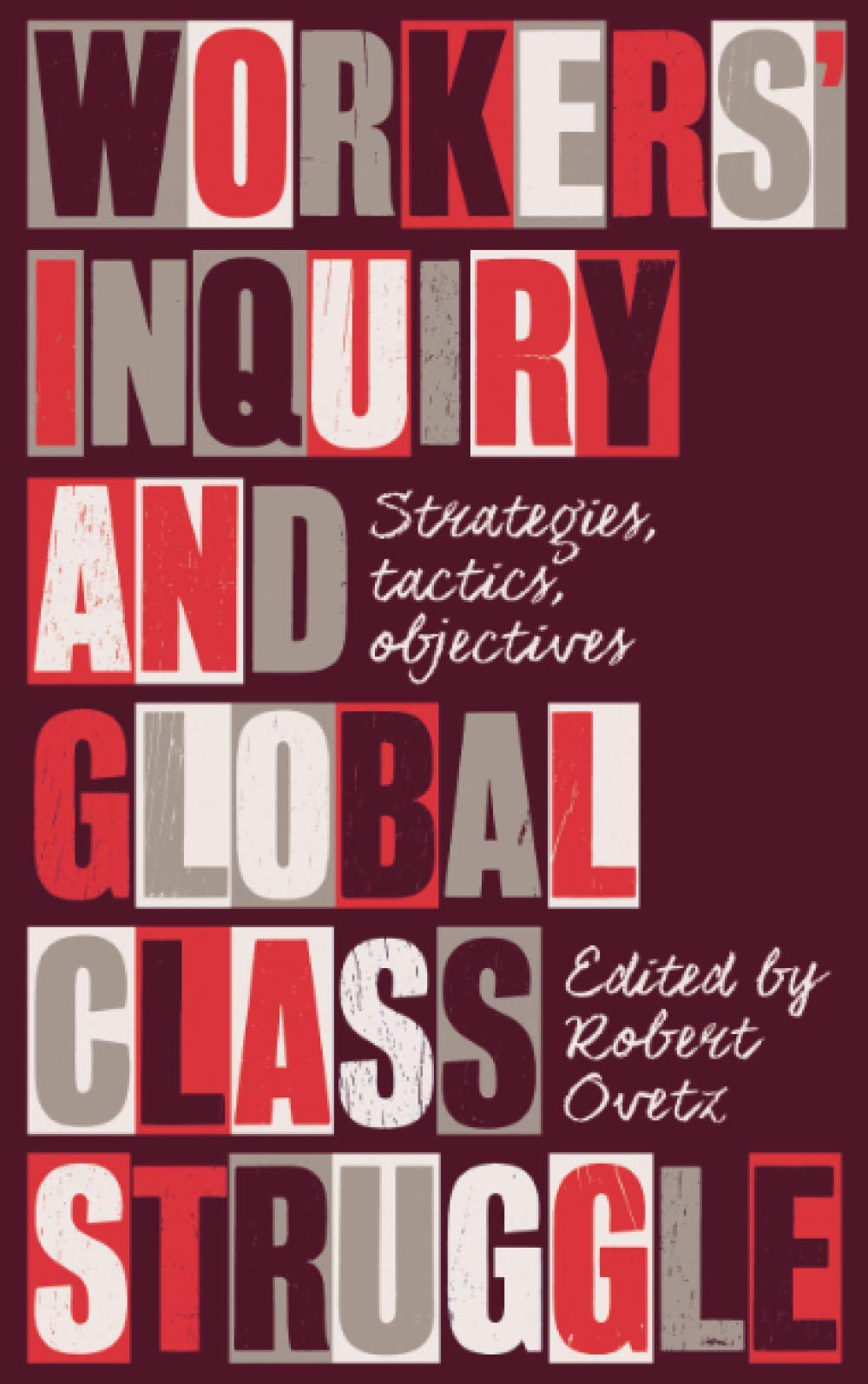by Brian Hioe
語言:
English
Photo Credit: Book Cover
WORKERS’ INQUIRY and Global Class Struggle: Strategies, Tactics, Objectives, edited by Robert Ovetz, is an ambitious book.
The book aspires to revive the practice of “workers’ inquiry,” as seen in the works of Marx and other socialist thinkers, as a means of allowing workers to examine their material conditions for a better understanding of how they might overcome. The introduction of the book positions this alongside attempts to understand the choke points of global capital, as points of leverage for workers in collective mobilization.
As such, the book takes a look at a number of global contexts, in the interests of providing for greater self-understanding by workers. The majority of these quick glimpses into various global organizations are academic, though the aim is to learn lessons from each where they provide lessons for the global workers’ movement.
Countries thus examined include Argentina, Turkey, the US, the UK, Italy, Mexico, China, South Africa, and India. There has been a clear attempt to avoid being Eurocentric, or focusing only on Anglophone contexts, though obviously, the purview of any single book is limited.
While the book’s attempt to examine a wide span of contexts is admirable, it is less clear how these different contexts relate to each other. Examining workers’ struggles on a country-by-country basis may be useful, but it is not always clear how these contexts act on each other, or could affect each other. Rather, the book seems to show that each context provides some lessons, whether that be with regards to successful or unsuccessful tactics or forms of organization, or patterns of state response.

Photo credit: steve lyon/WikiCommons/CC
Likewise, some chapters in the book do not mesh fully with the others, due to the authors operating off of different theoretical frameworks or different points of emphasis. The chapter on Italy focuses on race and gender much more strongly than other chapters, for example, while the chapter on Mexico varies from the primarily social science-based approach of the others due to drawing heavily on Hardt and Negri’s theories of the multitude.
It is not always clear how to fit these different chapters together, or how to integrate them, then. Indeed, it may be Ovetz’ own contribution to the book, a chapter on teacher’s unions in the US, that most seems to fulfill the aims that the book sets out to do—Ovetz is interested in the question of what the most effective time for unions to threaten a strike is, and his findings can offer valuable lessons to unions across the world.
By contrast, one sometimes gets a glimpse of local conditions in a specific location from the other chapters, but does not always have any takeaway that is generalizable to workers’ struggles writ large. This is the main shortcoming of the book.
It may be best to think of Workers’ Inquiry and Global Class Struggle as an attempt to revitalize the practice of workers’ inquiry that it describes then, as an initial contribution in this vein. If the book has further follow-up, aimed at fleshing out conditions in other parts of the world and allowing for the self-education of workers by learning from other contexts, this could be quite valuable to the global workers’ movement. In this respect, it is also to be hoped that future volumes could provide for a more integrated analysis of disparate global contexts, so that they can be understood relative to each other rather than simply on a country-by-country basis. However, at the same time, even if the book wishes to push for an approach it traces back to Marx and labels “workers’ inquiry,” it is still abstract what this means, outside of the broad parameters of allowing workers to better understand global labor conditions or share tactics.
After all, the problems facing workers worldwide ultimately return to global capital and so cannot be solved country-by-country. Rather, they are issues that demand internationalist solutions. Efforts to think through such internationalist solutions are highly welcome, as well as necessary, at this juncture in world history, but they cannot in themselves reflect murky thinking about global capital that hones in on the conditions of one country—to the exclusion of larger frameworks of analysis that shed light on the many modalities of global capitalism.



